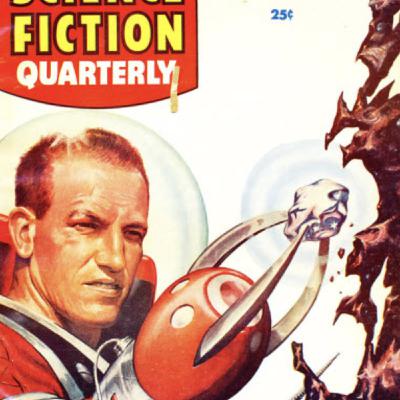81: SHOW 11-11-25 CBS EYE ON THE WORLD WITH JOHN BATCHELOR THE SHOW BEGINS IN THE DOUBTS ABOUT THE BBO CONTNUING INTACT. FIRST HOUR 9-915 Economic Slowdown Fears Amid AI Impact and the BBC Scandal. Liz Peek characterizes the US economy as slowing down,
Update: 2025-11-12
Description
SHOW
11-11-25
CBS EYE ON THE WORLD WITH JOHN BATCHELOR
1933 VON PAPPEN IN BERLIN
THE SHOW BEGINS IN THE DOUBTS ABOUT THE BBO CONTNUING INTACT.
FIRST HOUR
9-915
Economic Slowdown Fears Amid AI Impact and the BBC Scandal. Liz Peek characterizes the US economy as slowing down, with hiring affected by government layoffs and the displacement of tech jobs due to AI adoption. While the consumer remains robust, significant anxiety exists regarding the massive investments in AI and resulting stock market valuations. Peek comments on the BBC scandal, viewing the resignations as acknowledgment that the state-run outlet deliberately spliced footage to portray the US President as exhorting violence, revealing a deep, unfavorable political bias against conservatives.
915-930
Economic Slowdown Fears Amid AI Impact and the BBC Scandal. Liz Peek characterizes the US economy as slowing down, with hiring affected by government layoffs and the displacement of tech jobs due to AI adoption. While the consumer remains robust, significant anxiety exists regarding the massive investments in AI and resulting stock market valuations. Peek comments on the BBC scandal, viewing the resignations as acknowledgment that the state-run outlet deliberately spliced footage to portray the US President as exhorting violence, revealing a deep, unfavorable political bias against conservatives.
930-945
Middle East War Dynamics: Hamas Decimation, Peace Plans, and Hezbollah Rearmament. Jonathan Schanzer addresses the BBC's acknowledgment of breaching editorial guidelines over 1,500 times during the Gaza conflict. He confirms that Hamas has been decimated, operating as a spent, asymmetric urban force. Schanzer details the Trump administration's "Board of Peace" proposal for Gaza, stressing the need for a technocratic authority that excludes both Hamas and the Palestinian Authority. He also highlights troubling reports that Hezbollah is rearming with increasing speed, assisted by Iran and, surprisingly, Turkey.
945-1000
Middle East War Dynamics: Hamas Decimation, Peace Plans, and Hezbollah Rearmament. Jonathan Schanzer addresses the BBC's acknowledgment of breaching editorial guidelines over 1,500 times during the Gaza conflict. He confirms that Hamas has been decimated, operating as a spent, asymmetric urban force. Schanzer details the Trump administration's "Board of Peace" proposal for Gaza, stressing the need for a technocratic authority that excludes both Hamas and the Palestinian Authority. He also highlights troubling reports that Hezbollah is rearming with increasing speed, assisted by Iran and, surprisingly, Turkey.
SECOND HOUR
10-1015
Staffing Challenges and Political Bias: The Gaza Peace Plan and the BBC. Mary Kissel details the challenges facing the State Department and NSC in implementing the Trump administration's urgent Gaza Peace Plan, noting staffing issues are delaying coordination. The plan, featuring an apolitical "Board of Peace," seeks international legitimacy despite the UN's prejudice against Israel. Kissel expresses little surprise regarding the BBC scandal, viewing the deliberate distortion of the President's video remarks as appalling and emblematic of an "embedded bias" against conservatives that is deep and unfixable.
1015-1030
Staffing Challenges and Political Bias: The Gaza Peace Plan and the BBC. Mary Kissel details the challenges facing the State Department and NSC in implementing the Trump administration's urgent Gaza Peace Plan, noting staffing issues are delaying coordination. The plan, featuring an apolitical "Board of Peace," seeks international legitimacy despite the UN's prejudice against Israel. Kissel expresses little surprise regarding the BBC scandal, viewing the deliberate distortion of the President's video remarks as appalling and emblematic of an "embedded bias" against conservatives that is deep and unfixable.
1030-1045
The Rise of the AfD and the Threat to German Democracy. Judy Dempsey discusses the rise of the far-right Alternative for Germany (AfD) party, noting it is infiltrating German culture, education, and town halls, predominantly in the East. She warns that the AfD poses a danger to German democracy and the rule of law. The future hinges on whether established parties can isolate the AfD or if the Constitutional Court will intervene to outlaw the party. Dempsey also notes that the BBC scandal involves the highly scrutinized domestic service, distinct from the generally "exemplary" BBC World Service.
1045-1100
The Rise of the AfD and the Threat to German Democracy. Judy Dempsey discusses the rise of the far-right Alternative for Germany (AfD) party, noting it is infiltrating German culture, education, and town halls, predominantly in the East. She warns that the AfD poses a danger to German democracy and the rule of law. The future hinges on whether established parties can isolate the AfD or if the Constitutional Court will intervene to outlaw the party. Dempsey also notes that the BBC scandal involves the highly scrutinized domestic service, distinct from the generally "exemplary" BBC World Service.
THIRD HOUR
1100-1115
Rare Earths, Global Conflicts, and Reimagining Democracy. Gregory Copley analyzes China's rare earth monopoly, noting it was achieved through low pricing and unsafe practices but is now eroding as global suppliers ramp up production. He reviews current global conflicts, viewing the deployment of the USS Gerald R. Ford battle group near Venezuela as a test of brinkmanship, and citing Kyiv's admission of losses in Ukraine. Copley also argues that democracy is "dead," advocating for a return to defining the spirit of a social contract rather than relying on mutable laws.
1115-1130
Rare Earths, Global Conflicts, and Reimagining Democracy. Gregory Copley analyzes China's rare earth monopoly, noting it was achieved through low pricing and unsafe practices but is now eroding as global suppliers ramp up production. He reviews current global conflicts, viewing the deployment of the USS Gerald R. Ford battle group near Venezuela as a test of brinkmanship, and citing Kyiv's admission of losses in Ukraine. Copley also argues that democracy is "dead," advocating for a return to defining the spirit of a social contract rather than relying on mutable laws.
1130-1145
Rare Earths, Global Conflicts, and Reimagining Democracy. Gregory Copley analyzes China's rare earth monopoly, noting it was achieved through low pricing and unsafe practices but is now eroding as global suppliers ramp up production. He reviews current global conflicts, viewing the deployment of the USS Gerald R. Ford battle group near Venezuela as a test of brinkmanship, and citing Kyiv's admission of losses in Ukraine. Copley also argues that democracy is "dead," advocating for a return to defining the spirit of a social contract rather than relying on mutable laws.
1145-1200
Rare Earths, Global Conflicts, and Reimagining Democracy. Gregory Copley analyzes China's rare earth monopoly, noting it was achieved through low pricing and unsafe practices but is now eroding as global suppliers ramp up production. He reviews current global conflicts, viewing the deployment of the USS Gerald R. Ford battle group near Venezuela as a test of brinkmanship, and citing Kyiv's admission of losses in Ukraine. Copley also argues that democracy is "dead," advocating for a return to defining the spirit of a social contract rather than relying on mutable laws.
FOURTH HOUR
12-1215
Conservative Politics and Extremism; The Structural Problems of the BBC. Joseph Sternberg argues that mainstream conservatives must accommodate legitimate right-wing concerns (like immigration) to squeeze out extremists, referencing the German CDU/CSU's successful historical tactic against neo-Nazis. He analyzes the widespread BBC scandal, noting its huge cultural influence in the UK, where it is funded by a mandatory license fee. The deliberate editing of the US President's remarks and allegations of tendentious coverage of the Israel/Gaza war point to a deep, structural problem within the organization.
1215-1230
Conservative Politics and Extremism; The Structural Problems of the BBC. Joseph Sternberg argues that mainstream conservatives must accommodate legitimate right-wing concerns (like immigration) to squeeze out extremists, referencing the German CDU/CSU's successful historical tactic against neo-Nazis. He analyzes the widespread BBC scandal, noting its huge cultural influence in the UK, where it is funded by a mandatory license fee. The deliberate editing of the US President's remarks and allegations of tendentious coverage of the Israel/Gaza war point to a deep, structural problem within the organization.
1230-1245
The UN Cybercrime Treaty: A Tool for Digital Authoritarianism. Ivana Stradner warns that the UN cybercrime treaty, drafted by Russia and supported by China, undermines global human rights and free speech. She argues the treaty is mere "window dressing" enabling authoritarian regimes to pursue digital sovereignty—like Russia's "fake news" laws or China's "golden shield" project—to censor dissent. Stradner suggests that allowing Russia and China to regulate cyb
Comments
In Channel




















